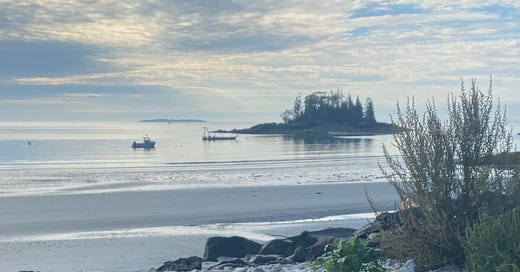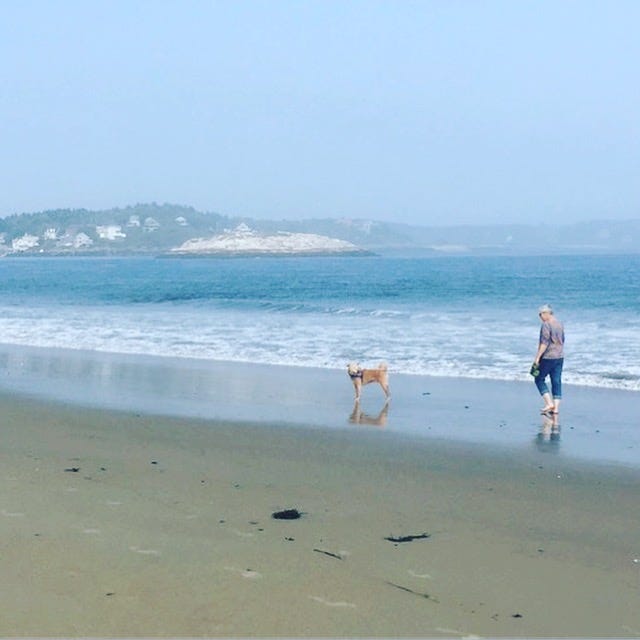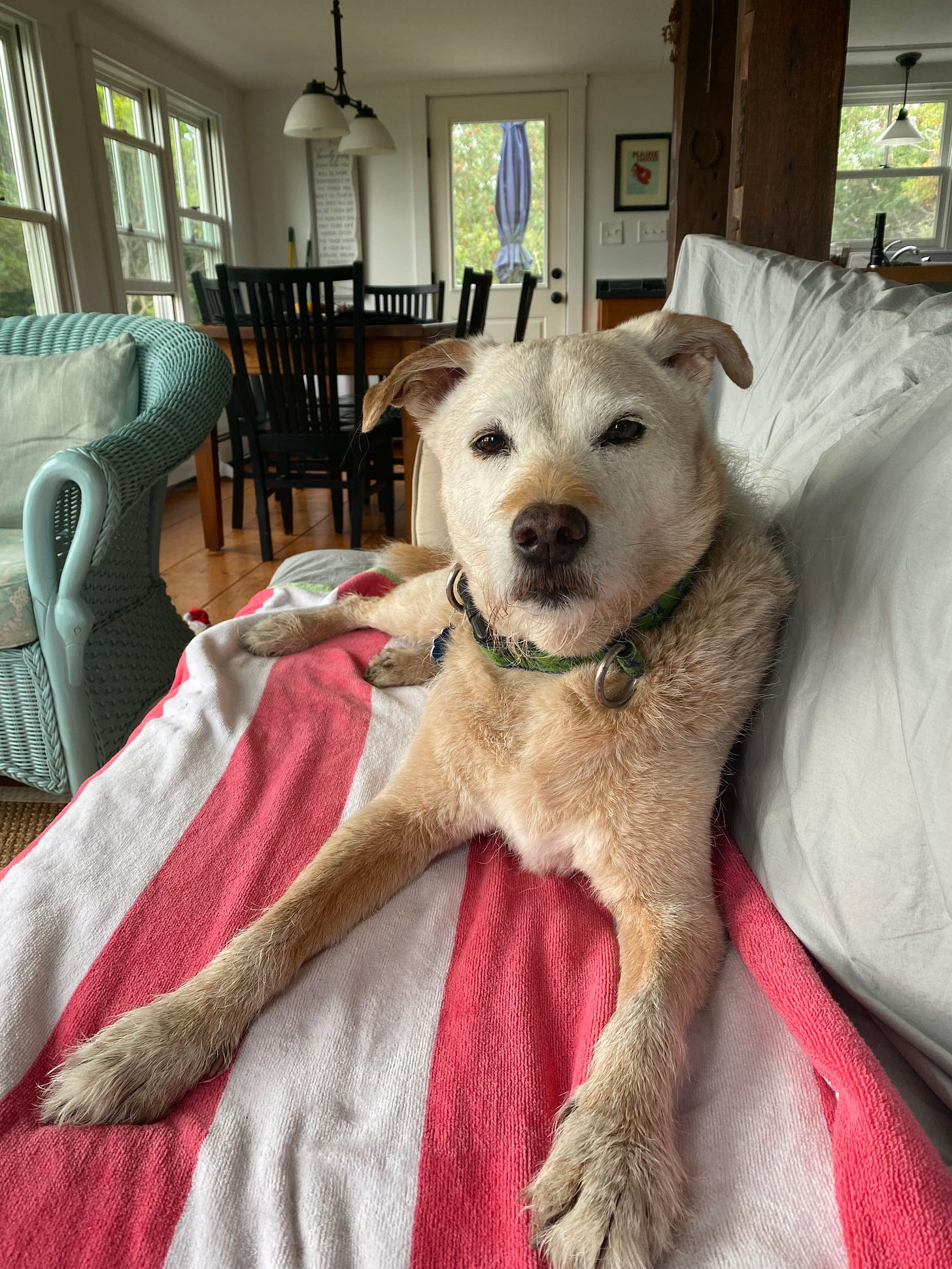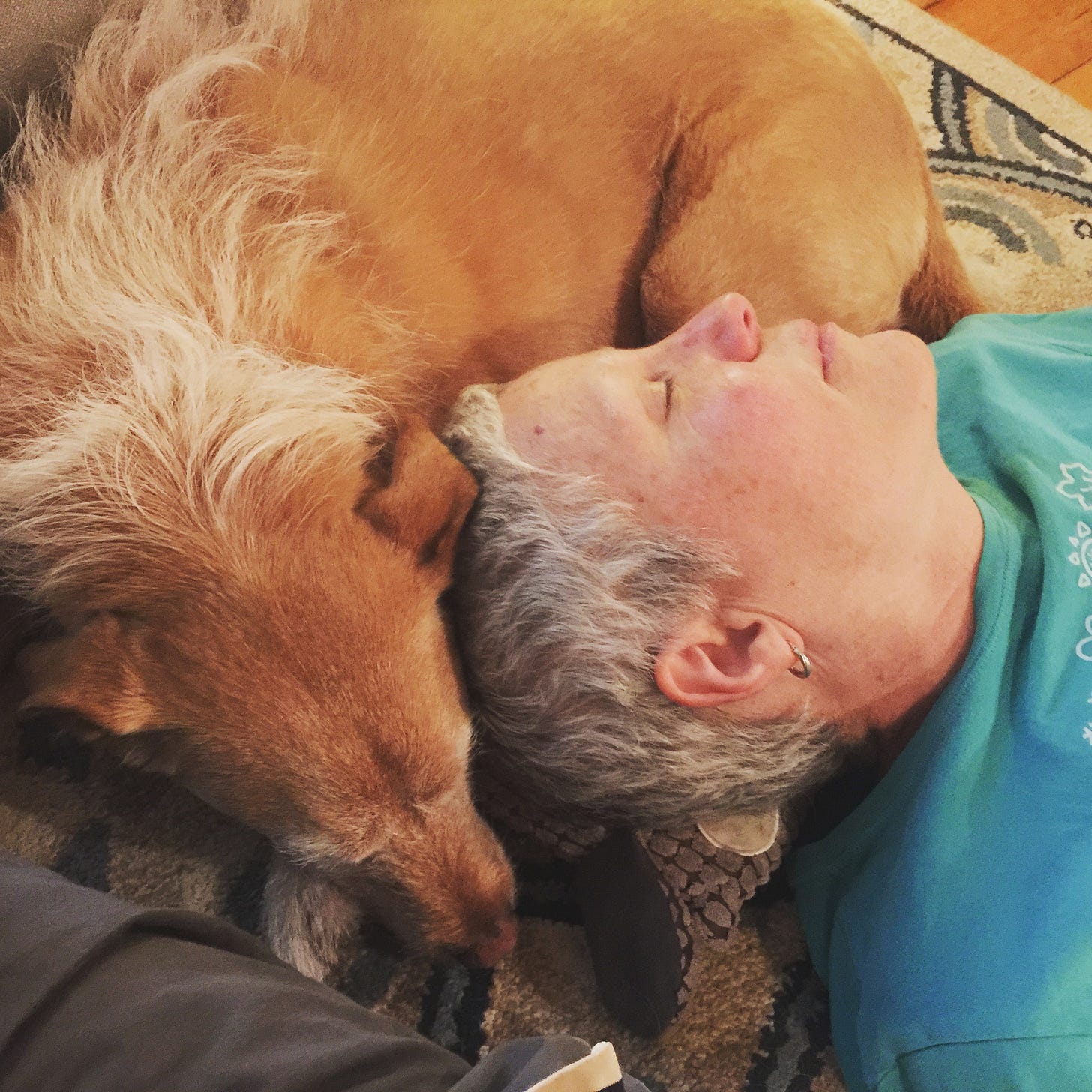Long before Maine became trendy, there were the rocks and the tides, the sand and the lobstering and the farms and the rivers.
There is the knowledge here that at any moment, the tides can turn, and the only thing consistent about them is that they do.
I have been coming to Maine since the early 1980s, when I would visit my dear college friend who was born and raised inland, in a town known historically for its mills and its small, excellent college. Once I graduated, I rarely returned, and when Susan and I got together, we spent our vacation time in Vermont, in a small house on the shores of Lake Dunmore. It wasn’t until 2011 that we re-calibrated our compass and pointed ourselves northeast, and rented a house in Phippsburg, Maine, near a wide ribbon of sand called Popham Beach. We packed up our rescue dogs — Addie, our beloved old yellow Lab who once tipped the scales at 106 pounds, and Petey, our terrier mutt, who was not even a year old at that point, and who came to us as a kind of substitute pup for all the litters taken away from Addie over the terrible years she spent as a backyard breeder in Arkansas —- and off we went. No matter what our days looked like, we always took the dogs to the beach and walked them 2 miles in one direction, and 2 miles in the other. Twice a day.
Eventually, we came further north, to Lincolnville, and rented a rambling camp overlooking Coleman Pond. When we lost Addie in 2016 at (she was 15, having come to us at 7), our little pack of four shrunk to three, and we decided that we would look for a cottage on the ocean rather than on freshwater. In 2018, we came to Owl’s Head and have been here ever since.
Petey is not a swimming dog and never has been. He’ll march around in the shallows and the tidepools, sending all manner of sea life fleeing for their lives.
But swim? Never. He does, however, love splashing around in the water off Crescent Beach, where we spend our mornings and evenings walking in one direction and then the other, with Petey chasing a stick that we carry under the passenger seat in our car all year, picking it up, and then dropping it with his back turned to us. He’s nothing if not a mass of quirks, but when we say Do you want to go to Maine the morning we begin packing the car, he gets hysterical, grabbing and shaking his toys, running up and down our hallway in Connecticut, and sitting on the porch staring at the car. This dog is no fool.
So here we are, in our happy place. We arrived on Friday (it’s now Monday), and apart from seeing our dear friend Kathleen, author of the great book The Maine House, it’s just been the three of us, recuperating from a very busy, difficult year.
And then this happened: Petey didn’t recognize the house.
Or our/his favorite hike. Or the beach. Last night, after a lot of physical activity, he seemed distracted and discombobulated and agitated, whimpering and crying while we sat on the couch, reading. He was panting heavily, which I recognize as a sign of anxiety, and when I called his name, he turned his head in another direction, his eyes frantically searching for me. So we sat with him on his bed for a while, stroking him and telling him what a good boy he is, and eventually he settled down and fell asleep and we tried, very hard, not to cry.
I know enough about dogs and I know enough about elderly humans to recognize the patterns of cognitive decline. But where humans often attempt to cover up the spottiness of their failing memories in elaborate attempts to hide the fact that they’ve, say, scorched the tea kettle again, dogs do not have this skill. With dogs, what we see is what we get; they are who they are, and they love us for who we are, even in spite of what the late Caroline Knapp called, in Pack of Two, a car crash of a previous life. Petey cannot try to hide the truth: that yesterday, in a place he loves and he knows, with the safety of his humans, he experienced sundowning.
And as it often happens with sundowning, when we woke early this morning to go back to the beach at low tide, he was our normal Petey again: exuberant and excited, grabbing and shaking his toys as he ran around the house, imploring us to get up already, brush the human teeth, get in the car, and drive to the beach for his morning constitutional. We did, and he was back to himself, at least for a little while.
We’re here for two weeks. When we arrive, it is still warm; when we leave, it’s cold, and trips to the beach require sweatshirts and jeans and thermoses of hot coffee. At the end of our stay, we come down to the water to say goodbye for another year, we pray for good health for ourselves and the people and beasts we love, and we drive home until the next September.
And the tides continue to turn, whether we want them to or not.








